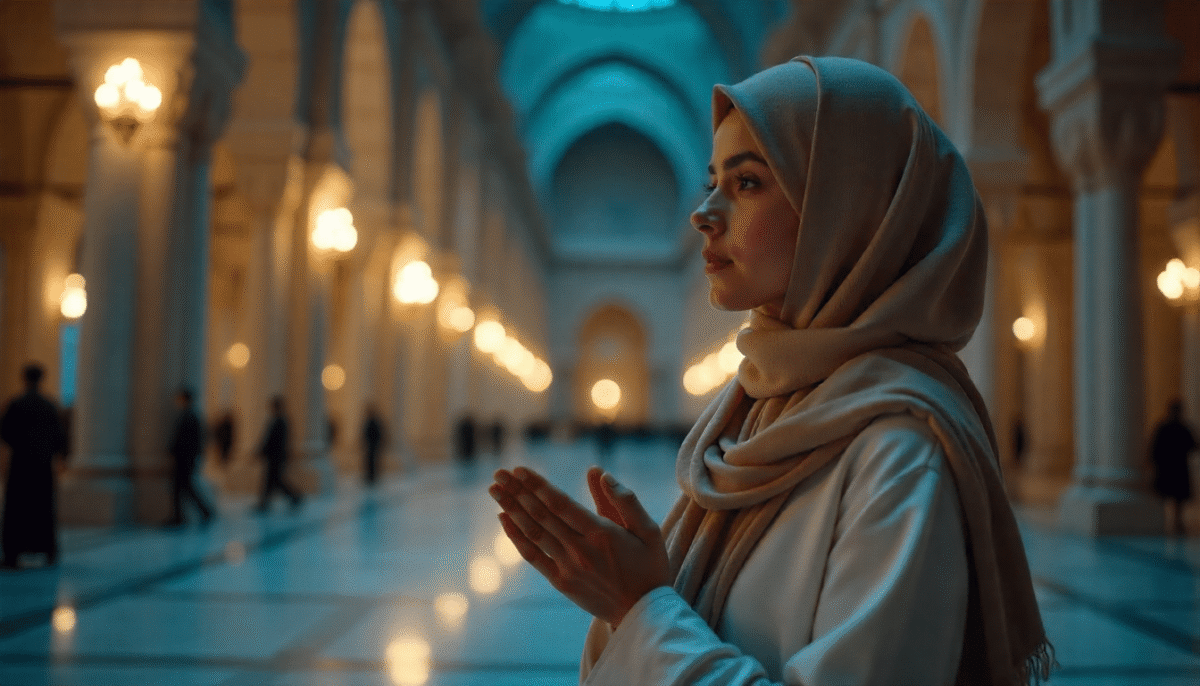
The concept of Ummah, or the global Muslim community, is central to Islam, fostering unity, support, and shared purpose. Community strengthens faith and provides a network for spiritual and social growth. This article explores the role of community in Islam and how it shapes daily life.
The Concept of Ummah
The Ummah unites Muslims worldwide, transcending cultural and geographic boundaries, as emphasized in the Quran: “This Ummah of yours is a single Ummah” (Quran 21:92).
Spiritual Unity
The islam article highlights the Ummah’s role in fostering collective worship and mutual support.
- Shared Faith: Common beliefs strengthen bonds among Muslims.
- Collective Worship: Congregational prayers and Ramadan unite the community.
- Mutual Support: The Ummah provides emotional and material assistance.
Community in Worship
Islamic practices like Salah, Zakat, and Hajj emphasize the value of communal participation and shared spiritual growth. These acts of worship are not only personal obligations but also serve to strengthen bonds within the Muslim community.
Collective Acts in Islam
-
Jumu’ah Prayers (Friday Prayer):
Every Friday, Muslims gather in mosques worldwide for Jumu’ah, the weekly congregational prayer. It is more than just a prayer; it is an opportunity for worshippers to listen to the khutbah (sermon), seek knowledge, and be reminded of their responsibilities to God and one another. The gathering fosters a sense of unity and equality, as all stand shoulder to shoulder regardless of status or background. -
Ramadan Activities:
The holy month of Ramadan is rich with communal experiences. Muslims break their fast together during Iftar gatherings, sharing food and fellowship. Taraweeh prayers, performed in congregation at night, bring worshippers together to recite and reflect upon the Qur’an. These activities cultivate compassion, strengthen friendships, and encourage acts of charity within the community. -
Hajj (Pilgrimage to Mecca):
The annual pilgrimage to Mecca is one of the most powerful demonstrations of Muslim unity. Millions of believers from every corner of the world gather to perform sacred rituals, dressed in simple white garments symbolizing equality before God. Hajj reminds Muslims of their shared faith, transcending differences in culture, nationality, or language, and reinforces the concept of the global Islamic ummah (community).
Building Strong Communities
Muslims are encouraged to actively contribute to their communities through service, engagement, and compassion. In Islam, helping others and strengthening community ties are seen as acts of worship and a means of earning God’s pleasure. The Prophet Muhammad (peace be upon him) emphasized the value of kindness, cooperation, and mutual support within society.
Practical Steps for Community Involvement
-
Volunteering:
Get involved in your local mosque or Islamic center by assisting with events, maintenance, or youth programs. Join charitable initiatives such as food distribution, disaster relief, or community clean-ups. These efforts not only support those in need but also foster stronger bonds among community members. -
Neighborly Support:
Islam teaches the importance of caring for one’s neighbors, regardless of their faith or background. Simple acts like offering meals, helping with errands, or providing emotional support can create harmony and trust in your neighborhood. -
Education and Knowledge Sharing:
Organize or attend Islamic study circles, classes, or workshops to increase knowledge and understanding of the faith. Sharing what you learn—whether it’s Qur’anic lessons, practical guidance on Islamic etiquette, or discussions about moral values—helps build an informed and spiritually enriched community. -
Charity Drives and Fundraising:
Support local and global causes by organizing or contributing to charity drives. This can include fundraising for those affected by natural disasters, providing resources for underprivileged families, or supporting educational programs. Such initiatives fulfill the Islamic principle of giving (sadaqah) and create a sense of global solidarity.
Community and Mental Health
A strong community provides emotional support, reducing isolation and stress.
Emotional Benefits
- Sense of Belonging: Community involvement fosters connection and purpose.
- Support in Trials: The Ummah offers help during personal hardships.
- Shared Joy: Celebrating Eid or milestones together enhances happiness.
Challenges in Community Engagement
Modern life can make community participation difficult, but solutions exist.
Overcoming Barriers
- Time Constraints: Dedicate specific times for community activities.
- Cultural Differences: Embrace diversity within the Ummah for inclusivity.
- Geographic Distance: Use online platforms to connect with Muslims globally.
The Role of Mosques
Mosques are central to Muslim communities, serving as places of worship, learning, and social interaction.
Mosque Activities
- Education Programs: Quran classes and lectures promote spiritual growth.
- Social Events: Community iftars or Eid celebrations strengthen bonds.
- Charity Initiatives: Mosques often lead Zakat and sadaqah distribution.
FAQs
Why is the Ummah important in Islam?
The Ummah unites Muslims in faith, fostering support, worship, and shared purpose.
How can I get involved in my local Muslim community?
Attend mosque events, volunteer, or participate in charity and educational programs.
What role do mosques play in the community?
Mosques are centers for worship, learning, and social activities, strengthening the Ummah.
How does community support mental health?
It provides emotional support, reduces isolation, and fosters a sense of belonging.
Can online communities replace physical ones?
Online communities complement but cannot fully replace in-person connections.
Why is collective worship emphasized in Islam?
Collective worship, like Jumu’ah or Hajj, reinforces unity and spiritual strength.
The Ummah is a source of strength, uniting Muslims in faith, worship, and compassion for a fulfilling life.
